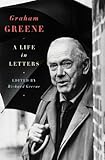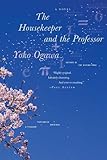 Graham Greene: A Life in Letters by Richard Greene
Graham Greene: A Life in Letters by Richard GreeneMy review
rating: 4 of 5 starsI think a selected-letters is the best form of biography for a writer, for whom (I’m projecting here) the distinction between prose-as-art and prose-as-communication is whisker-thin. This collection, edited by Richard Greene (no relation, he’s hasty to clarify), spans nearly seventy years, from Graham’s letters to his mother to notes to his grandchildren, through his pleading courtship with his wife Vivien (for whom, sadly, with the hindsight of objectivity, he was spectaculary ill-suited) and love letters to mistresses major and minor, with restless return addresses ranging from Mexico City to Sierra Leone to Saigon, Buenos Aires, Haiti and Antibes (a city in the south of France where he spent decades as a tax exile).
The reader can trace the intellectual, idiosyncratic fluidity of Greene’s politics—during the Cold War, he was dissatisfied both with what he saw as the inflexible jingoism of the U.S. (at the height of McCarthyism, he famously dared the State Department to deny him a visa based on his having been a Communist for six weeks at Oxford. Some non-literary-minded diplomat complied) and the USSR’s brutal suppression of artistic dissent. Religion, too, was essential to Greene; though he wavered in belief and was never particularly pious (see mistresses, above), Catholic notions of sin and redemption were never far from his fiction. He’s obviously tickled when, in 1965, Pope Paul VI invites him for an informal audience and reveals he’s read several of his books, even The Power and the Glory, which a previous Vatican administration had found troubling in its bleakness; Greene writes his daughter Lucy, “He said there would be always things in my books which offended some Catholics, but not to bother about that!”
My favorite missives are Greene's correspondence with Evelyn Waugh--no surprise they knew each other, being English Catholic novelists born in the early 1900s, but I hadn't known they were such fierce and affectionate friends. I'll have to hunt up a selected of Waugh's to read the responses. Particularly vindicating was his letter regarding David O. Selznick’s plan in the late 40s to film Brideshead Revisited (Greene was tapped for the screenplay): “I would rather it had been any other man almost than Selznick behind this, because he is an extraordinarily stupid and conventionally-minded man.” Waugh took his advice and dropped the project, and Brideshead didn’t make it to the big screen until last year, with a rather lesser scribe at the helm.
 The Housekeeper and the Professor: A Novel by Yoko Ogawa
The Housekeeper and the Professor: A Novel by Yoko OgawaMy review
rating: 5 of 5 starsLast summer I read Ogawa's The Diving Pool, three spare, eerie novellas where fat baby thighs, American grapefruits, and color-changing tulips take on strange significances. Housekeeper, to my surprise, wasn't surreal at all, but a sweet (and I mean "sweet" before the Age of Irony, when sentiment was not automatically cause for contempt) tale of memory, math, baseball, and improvised family.
The Professor of the title was a brilliant mathematician specializing in number theory until a car accident, 17 years before the book begins, left him with a short-term memory of only eighty minutes. He compensates in a small way with an elaborate system of notes pinned to his one suit, recording names, dates, formulas—and the most important one, of course, that reads “My memory lasts only eighty minutes.” After she meets him for the first time (he always meets her for the first time), the housekeeper narrator spies a new note, a crude sketch of her with “the new housekeeper” written underneath, and thenceforth she can introduce herself by pointing.
Every time the Professor meets her anew, he asks for a number that belongs to her—her shoe size, for example, or her phone number. It’s more than just a nervous tic: to the Professor, numbers contain and encode a beautiful, objective reality. Whatever integer she gives he becomes significant. Her shoe size, 24, is the sturdy factorial of 4 (1x2x3x4=24); her phone number, 576-1455, the number of primes between one and one hundred million. After he finds out her son is a latchkey child, the Professor insists the housekeeper bring him along, and dubs the boy “Root” for his radical-sign-flat-topped head. Root and the Professor bond over their home team, the Hanshin Tigers, and the three create a contented household of sorts, with that most primary of numbers, the Professor’s eighty minutes, always hanging over them.
What makes Housekeeper astonishing is Ogawa’s ability to locate warmth, affection, and tenderness in numbers, which are more important to the story than names—the two title characters’ names are never mentioned, and Root is only referred to by his mathematical nickname. The complex relationships between people not joined by blood are mirrored in rare numerical phenomena like “amicable numbers” whose factors add up to each other (the factors of 220 add up to 284; 284’s factors equal 220) and “twin primes” that differ from each other by two (there are six pairs under 100, and then a gap until 821 and 823). According to the Professor, “The mathematical order is beautiful precisely because it has no effect on the real world. Life isn’t going to be easier, nor is anyone going to make a fortune, just because they know something about prime numbers. . . . But those things aren’t the goal of mathematics. The only goal is to discover the truth.” Ogawa, I think, feels the same way about human love.
Also: isn't the cover pretty?








No comments:
Post a Comment